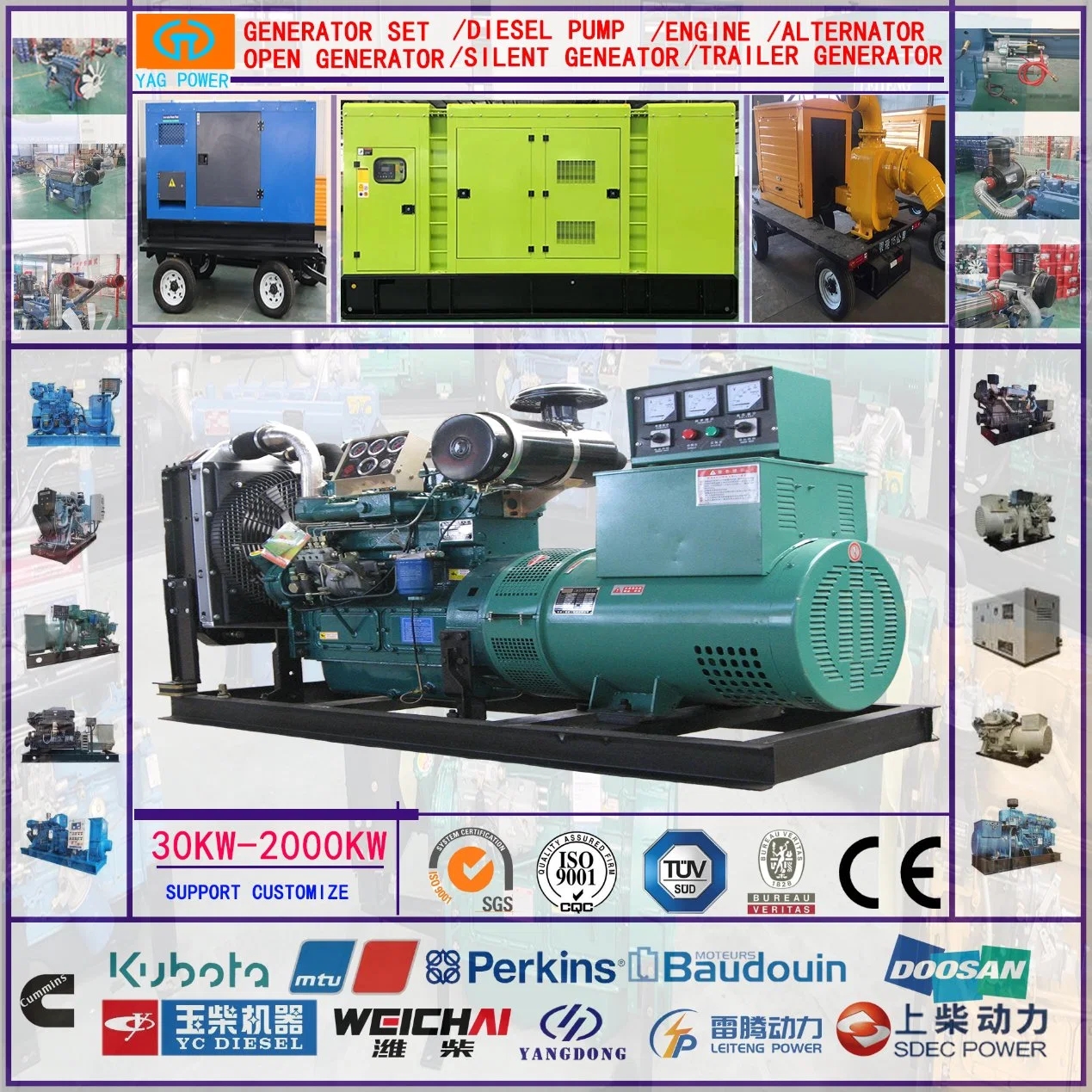Introduction
In today's modern world, electricity is a vital resource that powers our daily lives, from homes to industries. However, power outages are a common occurrence due to various reasons such as natural disasters, equipment failures, and grid overload. To combat the disruptions caused by these outages, many establishments rely on diesel generators for backup power supply. These generators play a crucial role in load management by providing a reliable source of electricity when the main power supply is interrupted. In this article, we will explore the importance of diesel generators for load management, their components, working principle, advantages, and applications in different sectors.
Importance of Diesel Generators for Load Management
Diesel generators are essential for load management as they ensure uninterrupted power supply during emergencies or planned outages. These generators act as a backup power source that kicks in automatically when the main power supply fails. This seamless transition helps prevent downtime and ensures that critical operations continue without disruption. In industries, hospitals, data centers, and other sensitive establishments, even a brief power outage can lead to significant losses in terms of productivity, revenue, and data integrity. Diesel generators provide a reliable solution to mitigate these risks and maintain operational continuity.
Components of Diesel Generators
Diesel generators consist of several components that work together to generate electricity. The main components of a typical diesel generator include:
1. Engine: The engine is the heart of the diesel generator and is responsible for converting diesel fuel into mechanical energy. Diesel engines are known for their durability, efficiency, and robust performance, making them ideal for power generation applications.
2. Alternator: The alternator is connected to the engine and converts the mechanical energy produced by the engine into electrical energy. It generates an alternating current (AC) output that can be used to power electrical loads.

3. Fuel System: The fuel system supplies diesel fuel to the engine for combustion. It consists of a fuel tank, fuel pump, fuel filters, and fuel injectors that work together to deliver the right amount of fuel to the engine for optimal performance.
4. Cooling System: The cooling system helps regulate the temperature of the engine to prevent overheating. It typically includes a radiator, coolant, water pump, and thermostat to dissipate excess heat generated during operation.
5. Control Panel: The control panel is the brain of the diesel generator and houses the necessary controls and monitoring devices for operation. It allows users to start, stop, and monitor the generator, as well as provides information on parameters such as voltage, current, frequency, and engine status.
Working Principle of Diesel Generators
The working principle of a diesel generator involves several steps that convert diesel fuel into electrical energy. The process can be summarized as follows:
1. Fuel Injection: The diesel fuel is injected into the combustion chamber of the engine, where it mixes with compressed air.
2. Compression: The air-fuel mixture is compressed by the piston inside the cylinder, leading to an increase in temperature and pressure.
3. Ignition: The compressed air-fuel mixture is ignited by the fuel injectors, causing combustion and the release of energy.
4. Mechanical Energy: The combustion process drives the piston down, converting the chemical energy of the fuel into mechanical energy.
5. Electrical Generation: The mechanical energy produced by the engine is transferred to the alternator, where it is converted into electrical energy through electromagnetic induction.
6. Voltage Regulation: The output voltage of the generator is regulated by the alternator to ensure a stable supply of electricity to the connected loads.
Advantages of Diesel Generators
Diesel generators offer several advantages that make them a popular choice for backup power generation. Some of the key advantages of diesel generators include:
1. Reliability: Diesel generators are known for their reliability and durability, making them suitable for continuous operation in demanding environments.
2. Fuel Efficiency: Diesel engines are more fuel-efficient than gasoline engines, providing cost savings over the long term.
3. Low Maintenance: Diesel generators have fewer moving parts compared to other types of generators, resulting in lower maintenance requirements and longer service intervals.
4. Quick Start-Up: Diesel generators can start up quickly and reach full load capacity within minutes, ensuring a seamless transition during power outages.
5. Longevity: Diesel generators have a longer lifespan than other types of generators, providing a reliable power source for years to come.
Applications of Diesel Generators
Diesel generators find applications in various sectors and industries where reliable backup power is essential. Some common applications of diesel generators include:
1. 200kw diesel generator for backup power : Industries such as manufacturing, mining, and oil and gas rely on diesel generators to power critical equipment and processes during power outages.
2. Commercial Buildings: Office buildings, shopping malls, hotels, and restaurants use diesel generators to maintain essential services such as lighting, HVAC systems, and security systems.
3. Healthcare Facilities: Hospitals, clinics, and medical centers require uninterrupted power supply for life-saving equipment, patient care, and critical operations.
4. Telecommunications: Telecommunication towers and data centers use diesel generators to ensure continuous connectivity and data integrity during power outages.
5. Construction Sites: Diesel generators are used on construction sites to power tools, equipment, and temporary facilities where grid power is not available.
Conclusion
Diesel generators play a crucial role in load management by providing a reliable source of backup power during emergencies or planned outages. These generators offer several advantages such as reliability, fuel efficiency, low maintenance, quick start-up, and longevity, making them a popular choice for various applications in different sectors. Understanding the components, working principle, and benefits of diesel generators is essential for ensuring a seamless transition to backup power and maintaining operational continuity in critical environments. As the demand for reliable power supply continues to grow, diesel generators will remain an essential solution for load management in a wide range of industries and establishments.
